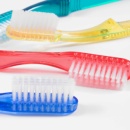 How to maintain dental hygiene should be a top priority each and every day. Good brushing and flossing, for one, are the foundation for dental cavities prevention. But there’s more. The state of your mouth, teeth and gums has been linked heart disease and brain health.
How to maintain dental hygiene should be a top priority each and every day. Good brushing and flossing, for one, are the foundation for dental cavities prevention. But there’s more. The state of your mouth, teeth and gums has been linked heart disease and brain health.
New York University (NYU) researchers last fall uncovered the link between gum inflammation and Alzheimer’s disease. They reviewed 20 years of information looking specifically at the association between the two, using data from 152 subjects in Copenhagen as part of Denmark’s Glostrop Aging Study.
Mouth hygiene and dental cavities
Advertisement
Try to think about this way: Your mouth is the dirtiest place in the human body. It’s a perfect environment for growing bacteria, viruses and fungi – it’s warm and dark, food goes in several times a day, and there are lots of nooks and crannies where food bits can get trapped.
In fact, more than 700 different types of bacteria are taking up residence in your mouth at a given moment. Not all are harmful, and so long as they remain in balance even disease-causing bacteria can be OK. It’s when they get out of balance that your teeth and gums can be damaged.
No matter your age, dental cavities prevention is important for your teeth and your overall health.
We’re going to look at the natural remedy for dental cavities and how to maintain dental hygiene. There are things to consider beyond the brushing and flossing – but make sure those are part of your daily routine!
Steps you can take to remineralize your teeth
To combat this, the minerals in our saliva, including calcium and phosphate, plus fluoride from toothpaste, water and other sources helps enamel repair itself by replacing minerals lost during an “acid attack.” The process is called remineralization.
Our teeth go through this natural process of losing minerals and regaining minerals all day long.
To help things along, you want to take a good, hard look at your diet. Your body – and your teeth and gums – need all those quality nutrients from fresh, whole foods. Not the kinds found in a box from the freezer section of your grocery. You’re missing out on crucial minerals that help prevent teeth cavities.
Bottom line? You need to start eating better to help remineralize your teeth. More fresh fruits and vegetables, salads, lean proteins, whole grains and legumes.
Some experts suggest eating vitamin A and C together for better absorption. An easy way to do this, beyond fresh foods, is supplementing with cod liver oil.
Another important tip is to include some saturated fats, like superstar coconut oil. Cholesterol is a vital building block needed for hundreds of functions in the body. In fact, your body produces three to four times the amount of cholesterol that you eat.
Some foods to avoid for dental cavities prevention
 When it comes to the right natural remedy for dental cavities, you also have to look at foods to avoid or at least limit. Here’s a rundown to keep in mind:
When it comes to the right natural remedy for dental cavities, you also have to look at foods to avoid or at least limit. Here’s a rundown to keep in mind:
- Sugar. If it’s not naturally found in your fruits, for example, try to cut back. Limit white sugar, evaporated cane juice, corn syrup, commercial jams and other items.
- Limit acidic drinks. Soda, cordials and fruit juices. Beyond the hidden sugars, food acids soften tooth material and dissolve the minerals in tooth enamel, causing teeth cavities. In severe cases, teeth may be ‘eaten’ right down to the gum.
- Flour products. Bread, crackers, cookies, donuts, breakfast cereals, muffins, pastries, tortillas, bagels, and sandwiches. If you do have some on occasion, opt for whole-grain, less processed versions.
- Hydrogenated oils. Margarine and low-quality vegetable oils, such as vegetable oil and soybean oil. Choose olive oil or coconut oil instead.
- Convenience food, takeout food, and junk food. A whole lot of empty calories, high on sodium.
- Soft drinks, sweeteners and anything artificial. Artificial colors or artificial ingredients are hard on your body.
- Non-grass-fed meat and eggs, and farm-raised fish. Choose grass-fed, pastured meats and poultry, and wild-caught fish.
- Alcohol and tobacco. Never good for your health and bad for your gums and teeth, too.
Ways to maintain good dental hygiene
 While we’ve covered good foods and bad foods, brushing (twice a day, please! In the morning and before bed) and flossing once a day, here are a few bonus tips on how to maintain dental hygiene:
While we’ve covered good foods and bad foods, brushing (twice a day, please! In the morning and before bed) and flossing once a day, here are a few bonus tips on how to maintain dental hygiene:
- Limit between-meal snacks. This reduces the number of acid attacks on teeth and gives teeth a chance to repair themselves.
- Make sure you don’t eat or drink anything with sugar in it after bedtime tooth brushing. Saliva flow decreases during sleep. Without enough saliva, teeth are less able to repair themselves after an acid attack.
- Save candy, cookies, soda, and other sugary drinks for special occasions only!
- Protect your teeth from injury. If you’re into sports, wear a mouth-guard or full-face helmet to protect your teeth and gums.
- Avoid using your teeth for anything other than chewing food! Don’t remove bottle tops or rip open packaging – you risk chipping or even breaking your teeth.
- See your dentist for regular checkups, and schedule a visit if you have a toothache or bleeding gums.
There’s so much you can do for a healthy mouth! The best natural remedy for dental cavities is taking care of your teeth and gums. Brushing, flossing, and good lifestyle habits will keep your dental health at its best. That’s definitely something to smile about.
Related Reading:
Brushing and flossing are good for your brain?
Advertisement
Most people know the bare basics of dental hygiene. If you don’t brush and floss regularly, it can lead to a number of issues ranging from tooth decay to gum disease. But there’s more.
Brushing your teeth for memory?
You may want to think twice about cancelling your dentist appointments, or “forgetting” to brush your teeth – a new study has found that doing so may impact much more than just your dental health – it may impact your memory and the welfare of your brain. Read more here.

 Everyone has to eat, right? But the quality of our modern convenience-driven diet may well be increasing our risk of teeth cavities. Think about the foods and drinks that contain added sugars or sub-par starches – white bread, cookies, candy, soda, juice, and many others. Bad news for your mouth. As the National Institute of Dental and Craniofacial Research explains, whenever we eat or drink something that contains sugar or starch, the bacteria use them to produce acids. These acids begin to eat away at the tooth’s hard outer surface, or enamel. Less-than-healthy foods are hard on your teeth and gums.
Everyone has to eat, right? But the quality of our modern convenience-driven diet may well be increasing our risk of teeth cavities. Think about the foods and drinks that contain added sugars or sub-par starches – white bread, cookies, candy, soda, juice, and many others. Bad news for your mouth. As the National Institute of Dental and Craniofacial Research explains, whenever we eat or drink something that contains sugar or starch, the bacteria use them to produce acids. These acids begin to eat away at the tooth’s hard outer surface, or enamel. Less-than-healthy foods are hard on your teeth and gums.